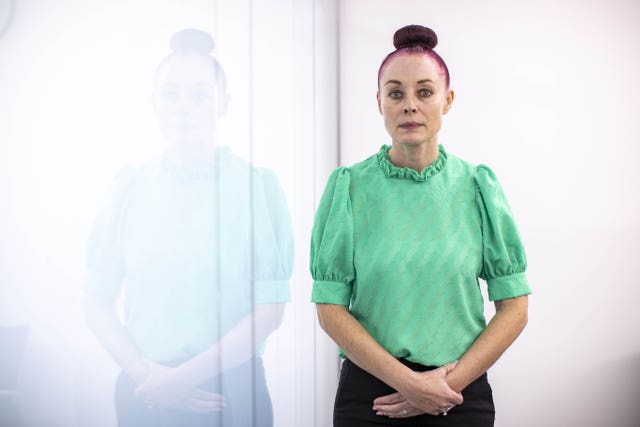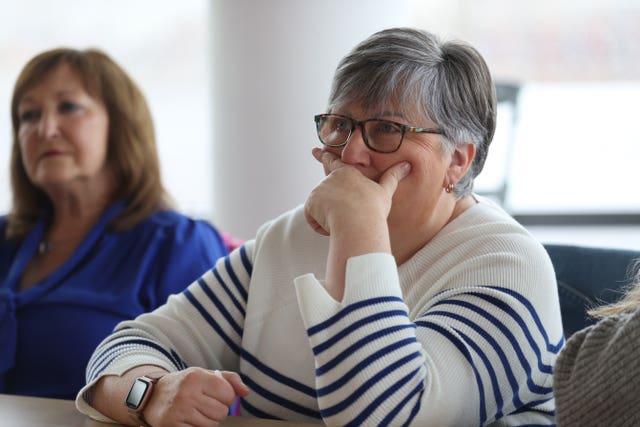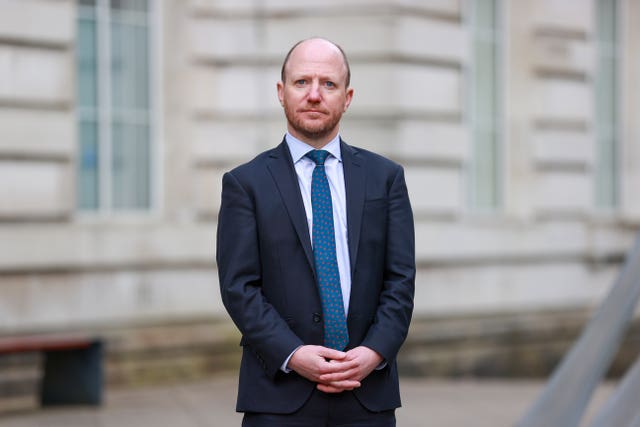
Legislation to ensure people are never restricted from visiting dying loved ones is needed, campaigners have said ahead of the first UK Covid-19 Inquiry sitting in Belfast.
The UK-wide inquiry’s hearings in Belfast begin on Tuesday and will run for three weeks and are designed to provide an opportunity to look in “depth” at the decisions taken in Northern Ireland.
This module will investigate the initial response, central government decision-making, political and civil service performance as well as the effectiveness of relationships with governments in the devolved administrations and local and voluntary sectors.
It will also assess decisions behind lockdowns and other non-pharmaceutical interventions.
Former first minister Baroness Arlene Foster, current First Minister Michelle O’Neill (who was deputy first minister during the pandemic), and Health Minister Robin Swann are expected to be among those witnesses to give evidence.

Key figures in Stormont’s Department of Health, including chief medical officer Sir Michael McBride and chief scientific adviser Professor Ian Young, are also expected to face questions at the inquiry.
A campaign group representing bereaved Northern Ireland families will hold a public gathering to coincide with the first day of the Belfast sittings.
Those who lost loved ones to the virus are being invited to attend the event at 9.15am outside the Clayton Hotel, dressed in red while holding photographs of those they lost during the pandemic.
Marion Reynolds, a member of Northern Ireland Covid Bereaved Families for Justice campaign group, will give evidence during Tuesday’s hearing.
Speaking ahead of her inquiry appearance, she told how her aunt, Marie Reynolds, contracted Covid during a hospital admission before being discharged to a care home where she subsequently died.
Ms Reynolds said: “During my aunt’s time in hospital and the care home I was unable to visit her, even though care partner guidance had been issued from the Department of Health to facilitate such visits for carers,” she said.

The Northern Ireland Covid-19 Bereaved Families for Justice campaign group is led by bereaved daughters Martina Ferguson and Brenda Doherty.
Ms Ferguson, a Portadown woman whose mother, Ursula Derry, contracted the virus and died in a care home in January 2021, said a thorough investigation needs to take place.
She said: “We need to find out what went wrong, what went right and what decisions were made specifically for and in Northern Ireland, who made the decisions and on what basis and scientific advice were they taken.”
She added: “We need changes in legislation that no-one will ever be restricted from their loved ones again or be allowed to die alone.”

Ms Doherty, from Newtownabbey, lost her mother Ruth Burke to hospital acquired Covid-19. Mrs Burke was the first woman in Northern Ireland to lose her life to the virus in March 2020.
“It’s important for us to hear, who was it that communicated advice and to whom in the administration did they advise, how did this inform the decisions made,” she said.
“This is not the time for party politics or point scoring but to be open and transparent in regard to the overall management of all aspects of the pandemic.”
On a visit to Belfast, inquiry secretary Ben Connah highlighted the inquiry’s Every Story Matters online platform for people affected by the pandemic to share their stories.
He encouraged people in Northern Ireland to use the site to detail their experiences.
The inquiry has already held hearings in England, Scotland and Wales and Mr Connah said it was crucial to examine the situation across all the UK nations.

Asked if three weeks was sufficient to examine the pandemic in Northern Ireland, he said: “Every single one of the chair’s investigations during the life of this inquiry is going to look at Northern Ireland, just as it will look at Scotland, Wales and England.
“But we’re here in Belfast for three very intensive weeks of hearings, where we’re really going to get into depth about the core political decisions that were taken from March 2020 through the pandemic, about the restrictions that applied to all the people that live in Northern Ireland, the way that they were changed over time, and the other really important decisions that were taken there.”
At a preliminary hearing in December, it emerged that WhatsApp messages sent by former Stormont ministers during the pandemic have been lost after government-issued electronic devices were wiped.
Those included the devices of Lady Foster and Ms O’Neill.
Asked about the absence of those messages, Mr Connah said: “We’ve heard a lot of evidence already in Edinburgh, in Cardiff and in London, about different aspects of the way decisions were taken, including the use of WhatsApp.
“So I’m pretty confident that the hearings over the next three weeks will have access to a lot of the evidence that they need.”


Comments: Our rules
We want our comments to be a lively and valuable part of our community - a place where readers can debate and engage with the most important local issues. The ability to comment on our stories is a privilege, not a right, however, and that privilege may be withdrawn if it is abused or misused.
Please report any comments that break our rules.
Read the rules hereLast Updated:
Report this comment Cancel